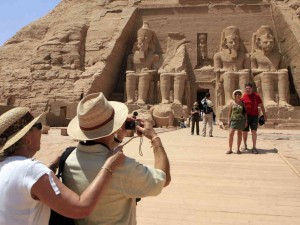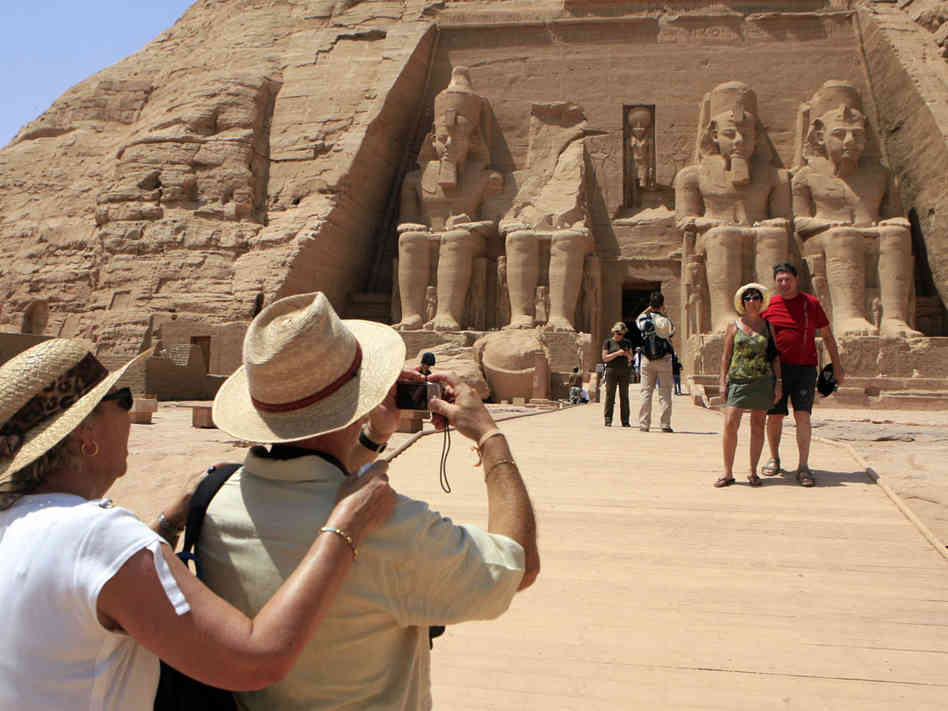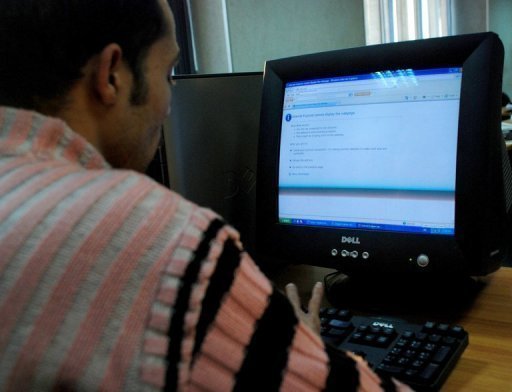
AFP Photo / Khaled Desouki
By Abd al-Razaq al-Shuyakhi
In a speech Hisham Zazua, Egypt’s Tourism Minister, said there was evidence that tourism in Egypt had fallen ill but was not dead, and that there was still hope for the revival of the sector if the country’s political environment were to stabilise. He pointed out that tourism in Egypt had increased throughout the month of March by 22% compared to same period in 2012, and that total numbers for 2012 rose 17.1% compared to that of 2011.
Zazua also said that the Egyptian museum’s soon to be established fourth location will help spark interest in the country’s ailing tourism sector, putting rare antiques and artifacts on public display. A number of Egypt’s hotels have established a donation program within their facilities to help fund the project, presenting tourists with the option to donate anywhere from $1-$7 to the project for each night at the hotel.
The program was announced during a press conference held by the Ministers of Tourism and Antiquities to sign a memorandum of understanding supporting the construction of the new museum.
Zazua said that he expected tourists to be enthusiastic about the new museum, adding that he was confident they would be willing to contribute to its construction. He said the new museum would help display the grandeur of ancient Egyptian civilisation, in addition to sending out a positive message about the viability of Egypt’s tourism sector. This message will be spread as the Ministry’s of Tourism and Antiquities, along with the Hotel Facilities Chamber, prepares to launch an advertising campaign for the new museum within the coming weeks.
Muhammad Ibrahim, Egypt’s Antiquities Minister, said that his Ministry was working diligently to promote cultural tourism in Egypt in a way that did justice to the historic greatness of Egypt’s ancient civilisations and unique cultural heritage.
He added that the project’s first and second stages have been completed with the construction of the museum’s storage facilities and restoration laboratories, saying that the recent memorandum of understanding would begin the third stage, set to be completed within the next 825 days, according to plans to open the new museum in August 2015.
Ibrahim extended his thanks to Zazua for his efforts in supporting the development of the Giza pyramids and the surrounding areas, in addition to the Rams Road in Luxor and other tourist destinations.
Responding to questions regarding the increase in Iranian tourism, Zazua confirmed that he would leave all doors open in his attempt to help increase the number of tourists coming to Egypt.
Zazua added that there was nothing to fear, labeling all talk suggesting that increased Iranian tourism would lead to the spread of Shi’ism throughout Egypt as gossip and dismissing such claims as ludicrous. He pointed to countries such as Turkey, Malaysia and the United Arab Emirates, which currently have high numbers of visitors from Iran and do not suffer from the dire consequences promoted by critics of the scheme.
He stated that in meetings held with Iranian officials no mention had yet been made of religious tourism or of the sponsoring of pilgrimages to holy sites. All that had been discussed so far, he said, was the expansion of cultural tourism and the promotion of resort beach facilities.
Zazua added that Egypt’s tourism authorities would be vigilant in working to promote Iranian tourism, stating that Egyptians should be confident in themselves, their culture and their traditions. He pointed out that Iranians coming to Egypt for several days on a tourist visa would not have the time or opportunity to affect Egyptian culture. Such tourists, he said, intended to travel to Egypt purely to experience Egypt’s historic sites and friendly culture.
He went on to state that Iran generates nearly 10 million tourists a year, who on average spend between $170 and $180 per day, nearly three times that of the average European tourist. He added that Iranian tourists are fond of artifacts and antiquities and could be expected to spend large amounts of money shopping and frequenting Egypt’s many historical destinations.
He said that Turkey receives a total of nearly 1.9 million Iranian tourists every year, while cities such as Dubai host 45 weekly flights per week to and from Tehran.



